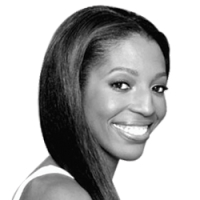Opinion
Photo Illustration by Erin O’Flynn/The Daily Beast/Getty Images
What Kate Middleton and Queen Camilla Owe to Women of Color
SEIZE THE MOMENT
They know what it is to be mistreated by the press. But they don’t know what it is to be a Black woman vilified in public.
opinion






